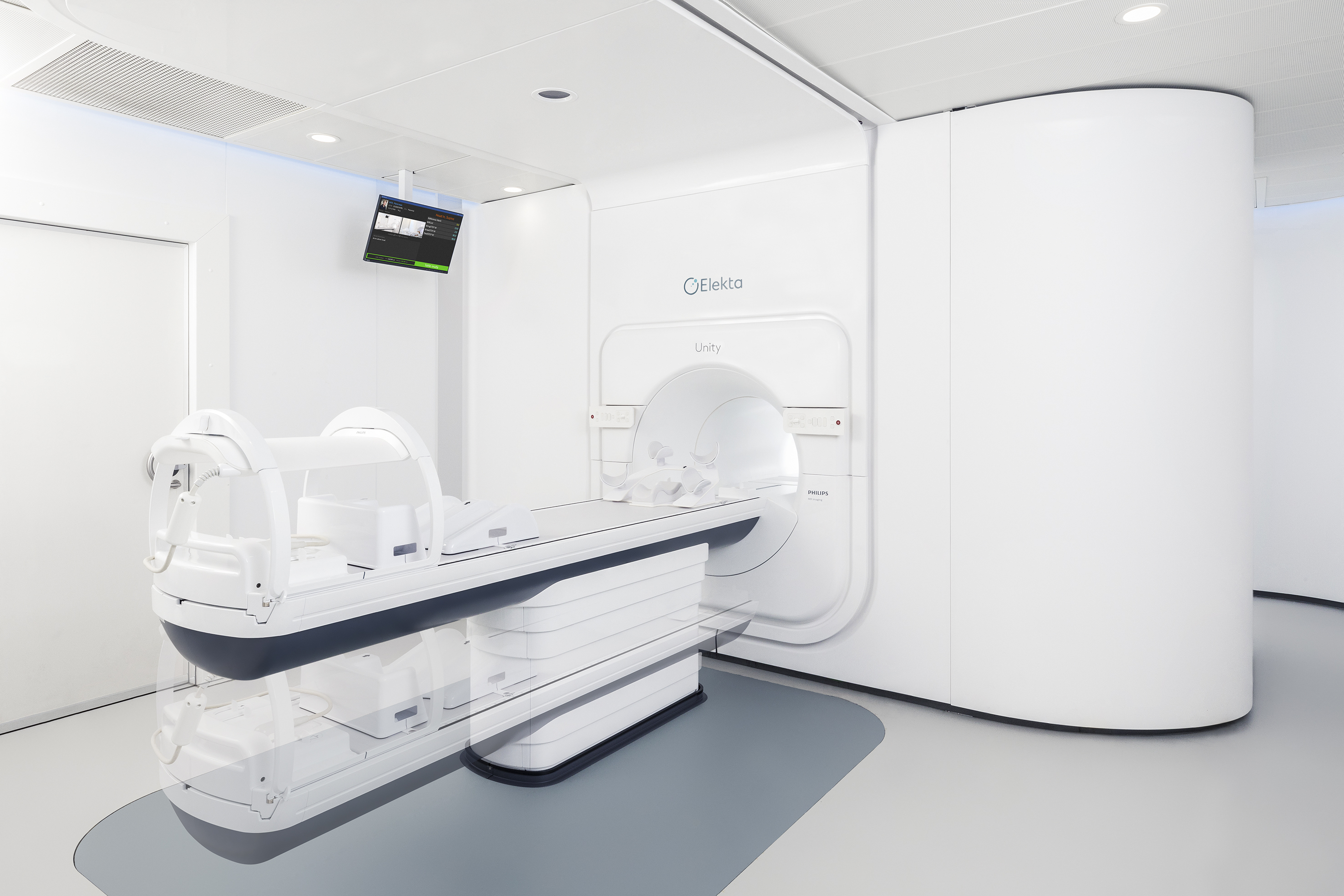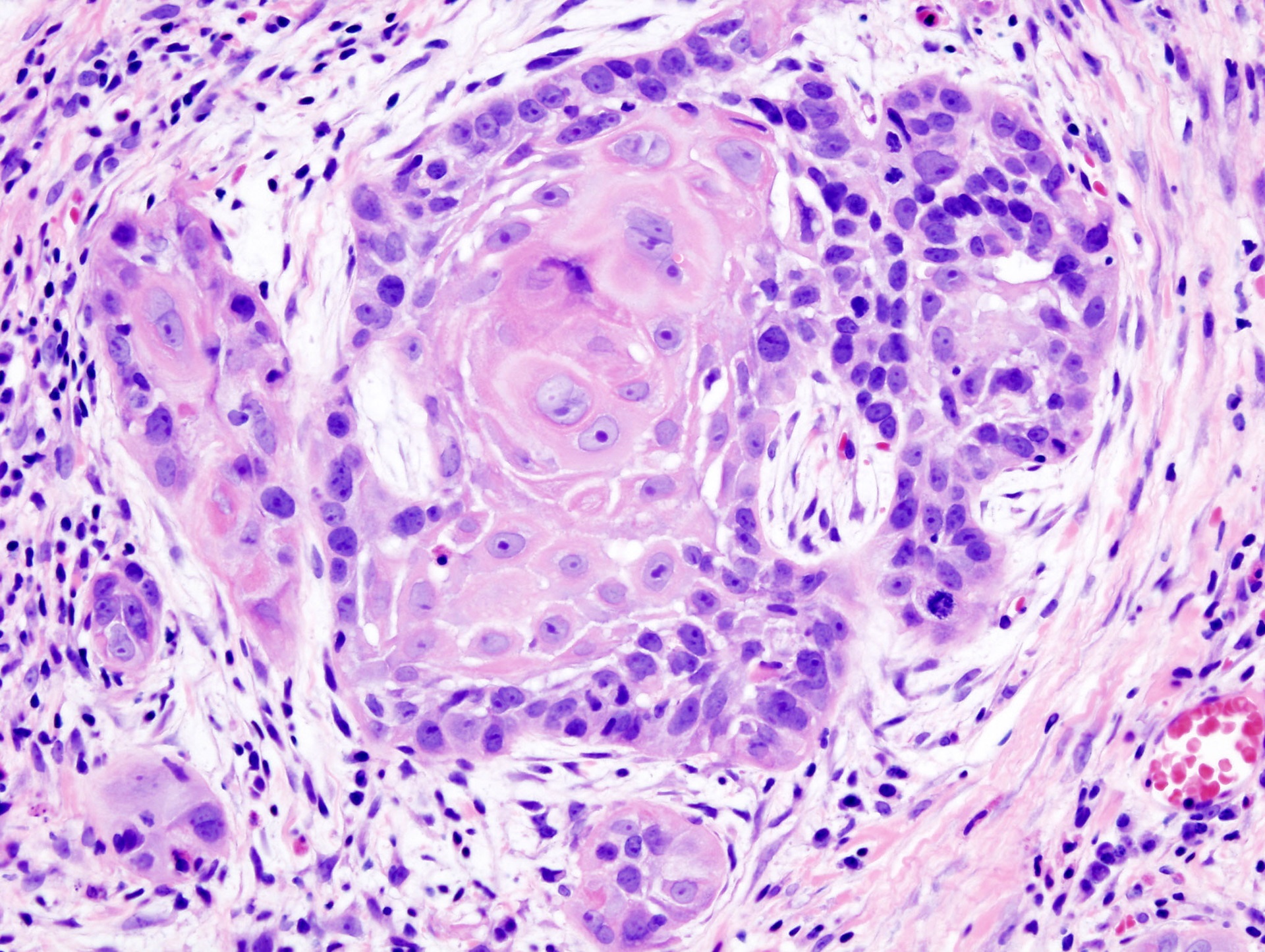Our research into head and neck cancer
Our research helped get the drugs pembrolizumab and nivolumab approved for treating head and neck cancers – a smarter, kinder alternative to chemotherapy. We are also developing therapies that improve head and neck cancer patients’ quality of life through our research and clinical trials.
Image: squamous cell carcinoma. Image credit: KGH
Our progress against head and neck cancer
Immunotherapy
Our researchers were some of the first to realise the promise of the immunotherapy drug pembrolizumab for treating head and neck cancers.
Professor Kevin Harrington was involved in an international clinical trial that showed that pembrolizumab can extend the lives of patients with an advanced form of the disease – with some living for three years or more compared to standard care.
Along with our partner hospital The Royal Marsden NHS Foundation Trust, we led a clinical trial that found that pembrolizumab to be a better first-line treatment for people with returning head and neck cancer compared to standard chemotherapy.
Regulators in Scotland, Europe, the US and Japan have since approved pembrolizumab to treat head and neck cancer patients whose disease has returned. Our work was instrumental in establishing pembrolizumab as the go-to drug to treat these patients.
Changing clinical practice
We showed that the immunotherapy drug nivolumab almost tripled survival rates for those with advanced head and neck cancer – at a time when the only option was chemotherapy – and was far kinder for patients than the traditional approach.
Because of our work, nivolumab was made available on the NHS via the Cancer Drugs Fund in 2017 for patients whose head and neck cancer had progressed within six months of receiving chemotherapy.

"I was treated very quickly after being diagnosed with tongue cancer, but it came back not long after that. Luckily there were more treatment options available for me, and now they think I’m going to be okay".
– Judi Billing
Blood test predictors
Human papillomavirus (HPV) is a known driver of head and neck cancer in some patients. Our scientists at the ICR and The Royal Marsden developed a blood test that can detect whether patients with HPV-positive head and neck cancer will have residual tumours, even after chemotherapy and radiotherapy.
The test also identified patients who are more likely to respond better to treatment. This could reduce the number of HPV-positive patients who undergo unnecessary surgery, while making it easier to detect those who have relapsed.
The Oracle Cancer Trust
We work with the Oracle Cancer Trust, a charity which provides grants to fund pioneering research projects into head and neck cancer, and supports our PhD students and post-doctoral researchers to discover smarter, kinder treatments for patients.
The trust has funded vital research by Professor Kevin Harrington and Dr Martin McLaughlin on accelerating cell death in head and neck cancer using a viral therapy.
Your support helps
Please donate today to help more people survive head and neck cancer. As a UK charity, our life-saving research relies on the generosity of individuals and organisations. Our supporters help us make a difference to the lives of cancer patients and their families everywhere.
Head and neck cancer discoveries

ICR and life sciences company QBiotics launch new collaboration to study potential cancer drug derived from rainforest tree species

